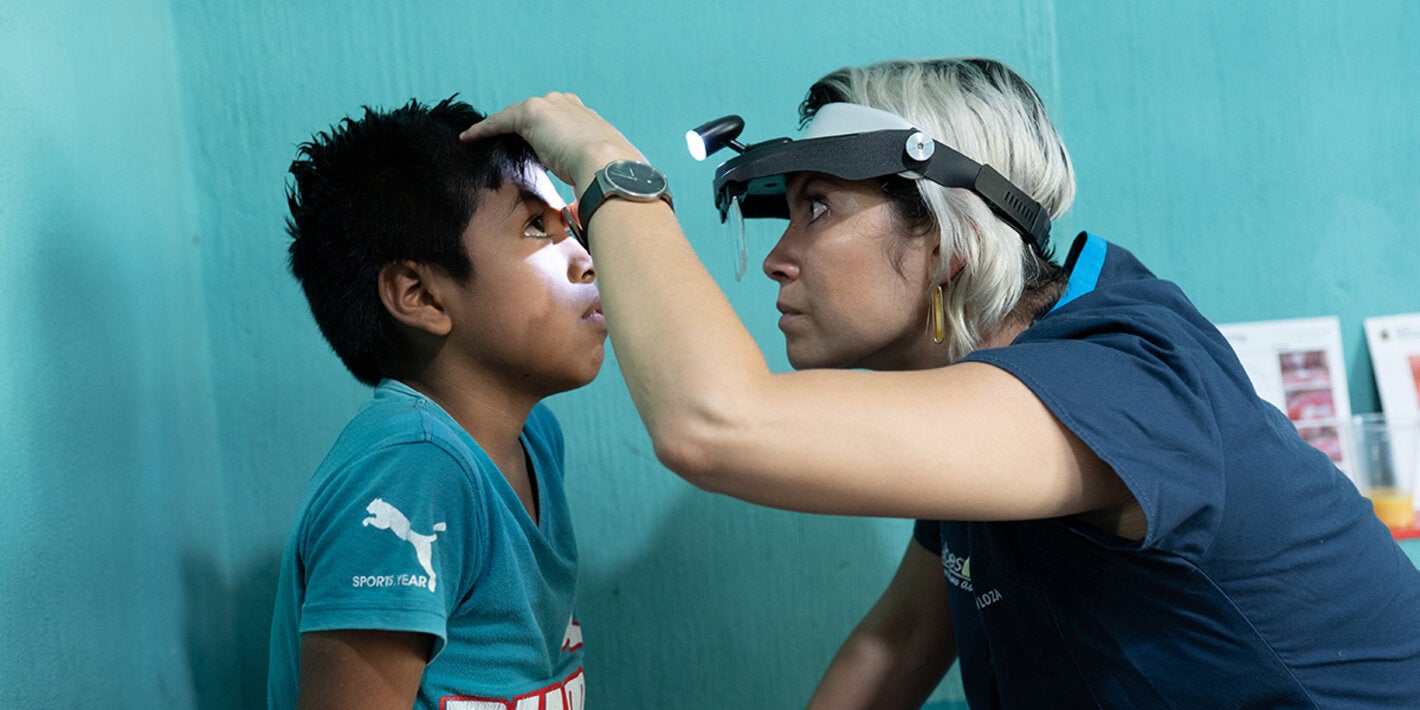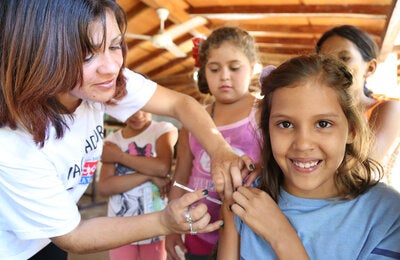

In the World Health Organization (WHO) Region of the Americas, national programs are increasingly integrating trachoma interventions into broader health care packages, to improve the health of some of the region’s most remote and hard to reach communities, including indigenous populations living in the Amazonian Basin.
In Colombia, the Ministry of Health has integrated trachoma interventions into primary health care for hard-to-reach populations. This includes the integration of mass drug administration with vector-borne disease platforms to bring treatment for trachoma and soil-transmitted helminthiases with integrated vector control management actions to communities also affected by this group of diseases, such as malaria, leishmaniasis and arboviruses. These actions are funded by the health system through resources allocated by the national government for public health interventions at the local level, and actions are implemented by health care workers that are paid by the health system and use their local capacities.
Similarly, in Venezuela, health services are integrated to service hard to reach communities and provide trachoma rapid assessments while identifying and treating malaria cases, providing vaccinations for children and adults, and ophthalmologic screening of eye diseases. This integrated delivery of health services is conducted with Ministry of Health resources, including health workers at the local level, medicines, and rapid tests.
Read the full article.



